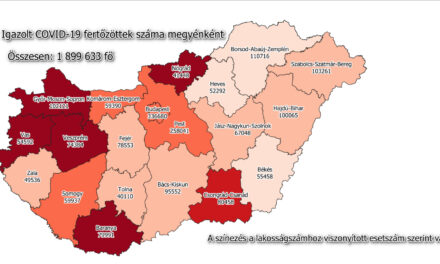Hungarian politicians stood up for the protection of national minorities on Tuesday at a high-level conference organized by the Hungarian Presidency of the Council of Europe's (EC) Committee of Ministers based in Strasbourg.
Katalin Szili pointed out that one of the most important priorities of the 6-month Hungarian presidency of the 47-member body is the protection of national minorities.
In this matter, he added, Hungary believes that it is necessary to introduce new measures and refine European and global regulations that strengthen the right of national minorities to self-identity. Katalin Szili emphasized:
the current legal toolkit is not sufficient to guarantee rights, it should be made mandatory in the member states that national minorities are state-creating factors, and their collective rights should also be ensured, assimilation should be prevented.
"The right to identity is a fundamental human right, so it must be protected. The preservation of the Europe of nations is only possible if self-identity and collective rights are ensured"
– underlined.
Ferenc Kalmár said that the Hungarian presidency formulated five basic principles on which a European minority protection policy can be built.
"The protection of national minorities is not an internal matter, but a European matter, the basis of which is national identity. This includes the right to use the mother tongue and the right to education in the mother tongue. Furthermore, identity – individual and collective – is part of human dignity, so both must be protected by law. The national minorities must be part of the state-creating part of the given country, but at the same time, national identities are not determined by their citizenship"
he discussed.
"The national minorities that have lived in the territory of a given country for hundreds of years have created a culture, in many cases a culture of a higher level than the given majority, thus enriching the state to which the territory where they currently live belongs," he added.
János Árpád Potápi, the state secretary responsible for national policy, said that about 100 million national minorities live in ET member countries. "Their case is not a Hungarian case, nor is it exclusively a Central European one, but a general phenomenon," he emphasized.
As he said, one third of the Hungarian nation lives outside the borders, so their situation is a priority for Hungary. Unfortunately, he added,
there are currently setbacks regarding their rights.
He cited as an example that the national community in Ukraine, which has been living in the same area for more than a thousand years, is currently not getting the rights it deserves.
Zsolt Németh , chairman of the Foreign Affairs Committee of the Parliament, the ET's existing system of instruments, the language charter and the framework convention on the protection of minorities provide effective action for the protection of national minorities, so the EU should also gradually join these conventions, and
based on these, it should create its own minority protection system.
He also suggested that the ET should prepare a national minority satisfaction survey in the member states so that comparisons can be made and a real picture of their situation can be obtained.
Kinga Gál , co-chairman of the European Parliament's minority working group, reported that "the behavior of the European Commission is always very reserved, even dismissive, regarding the issue of indigenous minorities.
"Using a double standard, it cynically refers to a lack of competence and the principle of subsidiarity, while constantly undermining the sovereignty of the member states and trying to overwrite essential powers of the member states, if that is what the political interest demands"
he emphasized.
The member of the EU Parliament said at the final minority protection conference of the Hungarian presidency that, as a member of the plenum of the conference on the future of Europe, he wants to give voice to the channeling of the voice of the traditional linguistic and national minority communities into this common thinking, and to effectively represent the interests of these communities.
At the conference closing the Hungarian presidency, a declaration was issued on the promotion of the situation and rights of national minorities. The statement emphasizes the special responsibility of the ET organization to ensure the implementation of its conventions with a comprehensive monitoring system, to develop new, legally binding standards in response to new challenges, and to provide expert advice and technical assistance to its member states through its cooperation programs as needed.
They also highlighted the proposal contained in the ET Parliamentary Assembly's recommendation on the preservation of national minorities, which aims to create a public online platform that would enable the collection of more data and the early detection of serious concerns affecting the rights of persons belonging to national minorities.
The statement also emphasizes the need for wider accession to ET conventions and, as a first step, invites the body's steering committee dealing with diversity and inclusion to develop a draft instrument on the above-mentioned principles by the end of next year, or to incorporate them into the European Convention on the Protection of National Minorities to the provisions of the framework agreement.
In addition, they propose that the steering committee create a working group with the aim of preparing a draft recommendation on the active political participation of national minorities by the end of next year.
MTI












